
The Climate Crisis: A new decade for change
The signs of global warming are everywhere, and are more complex than just climbing temperatures.
Scientists agree that human activities have, and still are, driving a worldwide climate crisis. We all know that it's happening and we can't escape from the impact it's having on the planet. The media bombard us almost daily with horrific images and there are obvious signs all around us. Carbon pollution is warming the planet meaning that the world's natural systems are out of balance. Throw into the mix pollution and a rising global population and it's a recipe for disaster!
We don't have to look far to see the affects. Hotter temperatures, the horrific fires blazing across Australia, melting Arctic ice, stronger and more frequent storms, rising sea levels; all threatening our health and our existence into the future.
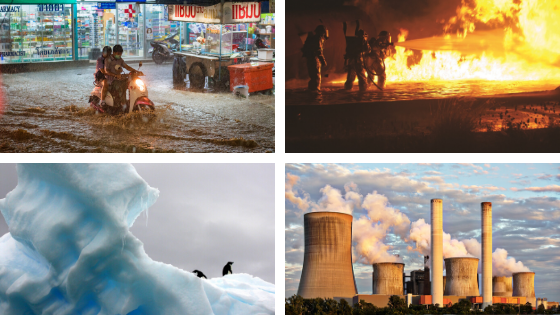 As we begin 2020 we can't help but notice in the media that it's individuals who are making a stand against climate change and not governments. Some leaders are pledging to be zero carbon by 2030 and 2050, but have you seen or heard of action and evidence to prove that positive changes are actually taking place by world leaders?
As we begin 2020 we can't help but notice in the media that it's individuals who are making a stand against climate change and not governments. Some leaders are pledging to be zero carbon by 2030 and 2050, but have you seen or heard of action and evidence to prove that positive changes are actually taking place by world leaders?
If governments continue to avoid actual action right now we're heading for a global temperature increase of 3C to 5C by 2100. (Source NOAA) If this actually happens what will the world be like to live in?
Let's take a trip into the future.
Buckle yourself into our Tesla Time machine, the battery's charged and ready to roll as we set the co-ordinates for 2050, and speed up to the crucial 88mph needed to be transported into the future...

"Good morning, it's Monday 20th January 2050 and you're listening to BBC Radio 2. Here is today's news and weather update;
-
Be prepared this week if you live in the coastal regions and towns of Cardiff, Newport, Bristol and Bath. Another super storm surge is forecast with waves reaching 100 of metres in height and meteorologists at the Met Office predict this next storm will possibly defeat Cardiff's new higher sea walls. Residents are advised to follow the normal protocol and head the nearest storm shelters as soon as possible.
Upon hearing the latest news MP's at the Welsh Assembly called an emergency meeting to discuss the relocation of the capital, Cardiff, to a higher, more northern location in Wales. They believe that the time has come to move out and move up for everyone's safety to ensure stability and longevity for the people of Wales.
- More weather news. Temperature highs this winter are predicted to hit the record books again this week around the globe with Los Angeles, Sydney, Madrid, Lisbon and now even Paris set to endure new highs in excess of 47C and London could reach 30C on New Years Day 2050. Scientists predict that temperatures this year could be the hottest temperatures in history.
-
There are reported sightings of more lethal algae blooms caused by the ongoing inbalance of the worlds ecosystem.– Drone footage has revealed toxic formations across the US and the Baltic.
- Today marks another catastrophic natural event for our environment. Scientists watched via webcam the last of the snow melting on the summit of Mount Kilimanjaro in Tanzania. Most of the snow capped mountains around the world have lost their snow in the last thirty years and mountain climbing dramatically reduced after fossil fuel air travel was banned in 2030. Scientists are keeping watch over the snow capped mountains located on the edge of the Indian and Eurasian continental plates for new signs of melting and potential flooding in the valleys below.
- Crops failed again in the Mediterranean countries throughout 2049 and starvation threatens the millions this new year. Experts estimated that between 50 and 700 million people could potentiality be driven from their homes in Italy, Spain, Southern France, Greece, Bulgaria, Turkey and Cyprus. The situation is very bleak for these nations as people face the grim reality of being forced to fight for food they have or to flee to northern countries for safety and the possibly of aid.
- The Red Cross has prepared an online guide for residents in northern France, Germany, Scandinavia and Eastern Europe with advice on how to prepare in case of a famine attack from fleeing nationals.
- The UN is on standby alongside the armies to prevent chaos and violence. Coupled with the mass migration from southern climates as a result of the fires, floods and droughts many others are expected to migrate across borders mid Europe's borders to the UK and Scandinavia this year. A spokesperson from the UK Government has said that plans are in place to accommodate Southern Europe's immigrants in the newly built high rise eco-towers in the north of England and Scotland. UK residents needn't worry about the British crops and water supply, the matter is in hand.
- As we begin another new decade of disaster and turmoil, a question on the tip of most of our tongues is - Are Generation Greta being forgotten by the government?
Many middle aged people are living out their teenage fears of the complete extinction of the human race and the breakdown of civilisation. Everyone is affected by rising prices, conflict, stress and depression but this generation is seen to be feeling the pain the most. Perhaps we won’t see the extinction of our species this decade, but what we have been, and are seeing is societal collapse happening all around us. The floods, heatwaves, droughts and fires are increasingly catastrophic and happening almost monthly. Private healthcare systems are struggling to cope with the increasing demand and further insecurity and desperation is sweeping through the UK population. It is evident that the Government is struggling to cope. What could be done to ease the deepening crisis? Should the UK Government reinstate the NHS to save thousands more lives? Should more money be allocated to support the Police to pay for more officers to control the increasing number of riots? Or should more funds be directed towards social charities who help to counsel this generations anxieties? Contact us and share your thoughts... - And now onto sport - As the final Olympics draw closer, we talk to the locals in hosting city of Toronto, Canada, about how the preparations are going to welcome the competitors to the final Olympic Games. This is the third Summer Olympics to be held during the winter months to avoid the furnace-like heat in many cities in Summer. The Olympic Council has made the decision to end this games this year in 2050 after years of protests and outrage from people around the world.
A spokesperson from the Olympic committee commented, "We feel that now is the right time to end the Olympics. We know that the world is no longer in the mood for games and it is impossible for us all to justify the emissions and the length of time it takes to travel by sea."
Retired Olympic diver, Tom, Daly, now 55, talked to us about this being a sad occasion mixed with celebration. He thinks that it's right decision for the planet and the people. He's proud to have taken part in so many Olympic Games over the last decades and to have witnessed so many amazing Olympians participating. He hopes to see the games return in his lifetime without impacting upon the planet. You can follow the full coverage of the final games live on the BBC. - And finally, end to the news bulletin, School children in the UK take a virtual reality trip to 2020 to find out what life was like when the lush green rain forests of the Amazon, Congo and Papua New Guinea when they were once the living lungs of the earth, providing homes to peoples, animals and plants. Although some may see this... [silence]
The news bulletin on the radio ends and your Tesla comes to stop on the carless street in Buxton High up in the Peak District. The roads are empty except for a few electric cars, hundreds of people are out on foot or by bicycle and seem only be staying in the vicinity of the town for their needs. The number of people is overwhelming. It's evident that the world’s population has grown significantly by billions people since 2020!
 Homelessness is rife on the streets of Buxton and another influx of people from southern Europe will only add the escalating problem for the town. It's clear to see that the ongoing cycle of severe weather conditions has lead to the catastrophic effects of food and water becoming scarcer. If forecast is accurate and the rains become heavier, even more people will continue to flood in from rural areas to Buxton, adding to the existing hardships faced by the City.
Homelessness is rife on the streets of Buxton and another influx of people from southern Europe will only add the escalating problem for the town. It's clear to see that the ongoing cycle of severe weather conditions has lead to the catastrophic effects of food and water becoming scarcer. If forecast is accurate and the rains become heavier, even more people will continue to flood in from rural areas to Buxton, adding to the existing hardships faced by the City.
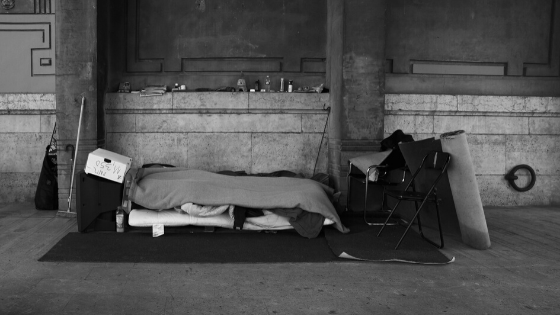 It's frightening to see Buxton suffer at the hands of this hellish man made climate. It was once a small rural town in the Peak District, but due to it's height above the rising sea levels, its been transformed into a mega city with high rise buildings as far as the eye can see. Each building has its own solar systems, “living” walls with plants and all the apartments seem to have balconies to grow a few vegetables.
It's frightening to see Buxton suffer at the hands of this hellish man made climate. It was once a small rural town in the Peak District, but due to it's height above the rising sea levels, its been transformed into a mega city with high rise buildings as far as the eye can see. Each building has its own solar systems, “living” walls with plants and all the apartments seem to have balconies to grow a few vegetables.
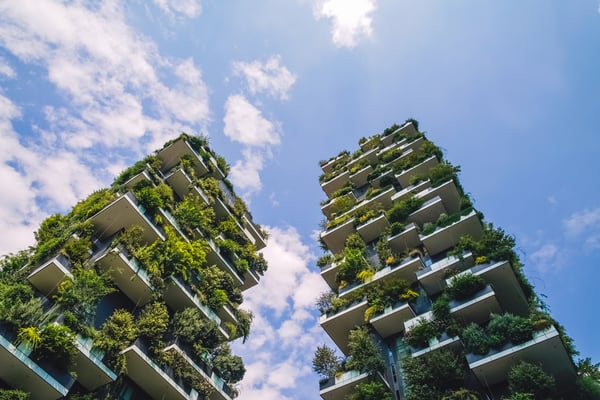 Outside the Tesla it's roasting hot, with temperatures averaging around 25C, in January! The earth’s temperature has risen just as the scientists predicted and the planet is now inevitably heading for average 3C or 5C increase, possibly within the next 100 years.
Outside the Tesla it's roasting hot, with temperatures averaging around 25C, in January! The earth’s temperature has risen just as the scientists predicted and the planet is now inevitably heading for average 3C or 5C increase, possibly within the next 100 years.
Giant electronic advertising billboard signs flash up various adverts but the ones that catch your eye the most are those for food. It's not just because you skipped breakfast and your stomach is starting to to grumble. It's the cost of the food that grabs your attention; the prices are astronomical!! The inflated prices must be due to the increase in the number and the severity of floods and droughts affecting the world’s main food-growing areas. Hence the reason why people seem to be growing their own.
Although the city is densely developed and highly populated the air seems to be clean and it's strange how silent it is. There are very few vehicles on the street and the ones that are around are electric. Looking up the skies are empty and there are no aircraft flying overhead at all. Banning carbon fueled travel seems to have clean up the air in this city.
 But people don't appear to need to travel much now. It's clear that the local authority has thrown money at protecting infrastructure, helping people adapt to the higher temperatures and ever more frequent storms. Surprisingly there are still some green spaces left and some man-made structures have also been created to mimic the trees that once stood shading the streets.
But people don't appear to need to travel much now. It's clear that the local authority has thrown money at protecting infrastructure, helping people adapt to the higher temperatures and ever more frequent storms. Surprisingly there are still some green spaces left and some man-made structures have also been created to mimic the trees that once stood shading the streets.
It's clear that the government has taken some national action against climate change, but it's obvious that not enough was done to change the impact in the global warming due to the environment surrounding you. Even without climbing the high rise buildings glimpses of the water can be seen between the urban sprawl of in the distance. As predicted the the continuing loss of ice at the poles and in the great mountain ranges has meant that sea levels have risen faster and higher that you believed would be possible possible 30 years ago.
 This must be why people have sold up and moved to the higher land here in Buxton you think. You overhear an older couple chatting mid conversation close by saying, "Did you that she's been told that the underground water supplies to her block of apartments are beginning to be polluted with seawater and they might only last another 10 years. If that happens they've told her that her apartment block will be deemed unsafe to live in within 20 years because of flooding. But it’s far worse in our side of the city. What's it like over by you?"
This must be why people have sold up and moved to the higher land here in Buxton you think. You overhear an older couple chatting mid conversation close by saying, "Did you that she's been told that the underground water supplies to her block of apartments are beginning to be polluted with seawater and they might only last another 10 years. If that happens they've told her that her apartment block will be deemed unsafe to live in within 20 years because of flooding. But it’s far worse in our side of the city. What's it like over by you?"
As you walk along the street there is an apparent divide between rich and poor. You can see that the extremely poor don’t live in robust houses, and they don't have as high walls to defend themselves from the storms and floods. Without money it's not as easy to adapt compared those living a high rise lifestyle. But if they left, where would they go? Every year their homes decrease in value compared the high rise empires alongside. Being so close to the sea only the properties that are higher or with excellent defenses against the elements now attracts premium prices.
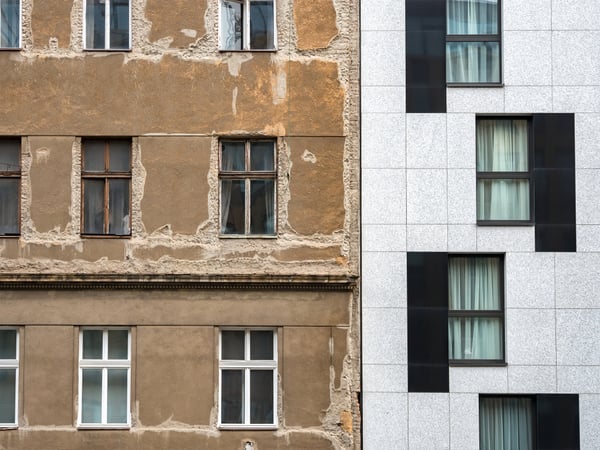 All around you is the catastrophic reality that everyone was being warned about in 2020 and the years proceeding. The predictions and scientific research is accurate. The science evidence was there for us all all to see now in 2020. We were facing an unprecedented global emergency and ad life or death situation of our own making.
All around you is the catastrophic reality that everyone was being warned about in 2020 and the years proceeding. The predictions and scientific research is accurate. The science evidence was there for us all all to see now in 2020. We were facing an unprecedented global emergency and ad life or death situation of our own making.
Time to travel back and make a change...
Small individual changes that we all make, like walking instead of taking the car, turning heating down a degree and switching lights off when we leave the room don't really make much of a dent in the problem facing us. To truly make an impact action must be taken by world leaders to ensure that everyone around the globe, whether you're a business or an individual adapts sooner rather than later. The evidence is all around you. To start making a difference we need to be compelled to change otherwise things will continue on the same course, where a green business or lifestyle is a personal choice rather than an obligation.
What can we do?
We take the warnings regarding climate change very seriously at Croft Architecture and we endeavour to help our clients to create sustainable buildings that are low-energy or even energy-positive.
Building Regulations currently dictate the minimum requirement for the energy efficiency of a building under Part L, but the regulations alone are not enough to help reverse the effects of climate change.
At the outset of all projects we chat with our clients and discuss the advantages of an energy efficient build. It’s not just residential clients who can benefit. Schools, offices, health care facilities, hotels or even apartments can be ultra-low energy. The basics apply to all, lower running and maintenance costs, healthier and happier environments and in there better for the environment too.
Discover how healthy learning environments can improve engagement, enjoyment and results.
All clients, whatever the project, can gain from a more sustainable design, or even an energy positive renovation or build. It’s our responsibility as architects to educate and advise clients that a sustainable build doesn’t just help the environment.
For example, a sustainable school will benefit from lower running costs, but it also provides an educational live example for the students, providing real life evidence of how we can all live, work and grow in a sustainable environment. Everyone’s a winner!
To find out more about creating low energy or zero carbon buildings you can read more in our short blogs here.
Energy efficient, sustainable and healthy homes.
Just because projects are energy-efficient, it does not mean that clients must compromise on their design aspirations or requirements. We’ve recently had the pleasure of working with a retired couple who wanted to future proof their home to improve accessibility and use renewable sources of energy to power their home. They aspired for their home to provide level easy access throughout and they wanted to ensure that their home stayed relatively maintenance free, cheap to run and healthy to live in too. Their design resulted in a highly energy efficient home. Read more about their project here…
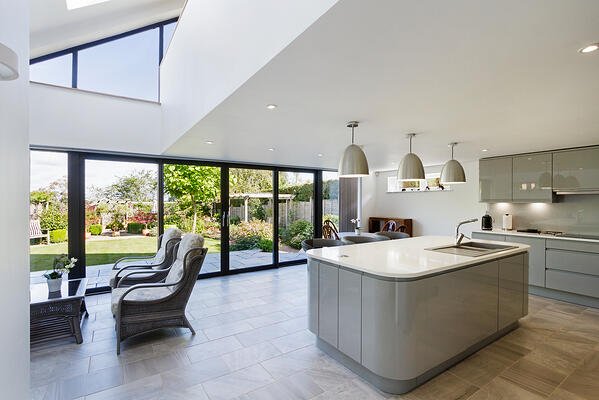 The UK Government has already set a 2050 target - to reduce emissions by 80%. This was previously was agreed by MP's under the Climate Change Act in 2008, but it has since been amended to the new, much stricter, goal to become "net zero" on greenhouse gases by 2050.
The UK Government has already set a 2050 target - to reduce emissions by 80%. This was previously was agreed by MP's under the Climate Change Act in 2008, but it has since been amended to the new, much stricter, goal to become "net zero" on greenhouse gases by 2050.
We know it can be done, but it unfortunately it needs policy, regulation and incentives in order for it to become ingrained into all design and business practice for all.
If you’re interested to know what zero emissions in 2050 would mean for the UK have a quick read of 'The Guardian's' insight into life in 2050…
The Committee on Climate Change says cutting greenhouse gas emissions to zero by 2050 is necessary, affordable and desirable. Here are some of the actions needed to make that happen:
- Petrol and diesel cars banned from sale ideally by 2030 and 2035 at the latest.
- Quadrupling clean electricity production from wind, solar and perhaps nuclear, plus batteries to store it and connections to Europe to share the load.
- Connection of new homes to the gas grid ending in 2025, with boilers using clean hydrogen or replaced by electric powered heat pumps. Plus, all homes and appliances being highly efficient.
- Beef, lamb and dairy consumption falling by 20%, though this is far lower than other studies recommend and a bigger shift to plant-based diets would make meeting the zero target easier.
- A fifth of all farmland – 15% of the UK – being converted to tree planting and growing bio fuel crops and restoration of peat bogs. This is vital to take CO2 out of the air to balance unavoidable emissions from cattle and planes.
- 1.5bn new trees will be needed, meaning more than 150 football pitches a day of new forests from now to 2050.
- Flying would not be banned, but the number of flights will depend on how much airlines can cut emissions with electric planes or bio fuels.
The everyday choices that we make have an impact on the environment. As we know the earth only has limited amount of natural resources, from food and water, to fossil fuels. We all have a limited amount of time to reduce the emissions and pollution in order to reverse the effects on the planet and for us all to stay healthy.
Talk to us about how we can help you to make a sustainable change with your existing building or prospect project.

